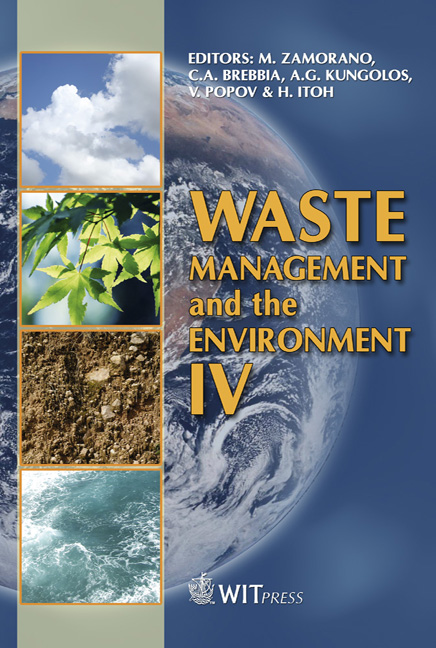Hydrogen Content And Calorific Value Of Municipal Solid Waste: Innovative Quality Control Strategies Of Waste Fed To Incinerators
Price
Free (open access)
Transaction
Volume
109
Pages
10
Page Range
289 - 298
Published
2008
Size
608 kb
Paper DOI
10.2495/WM080311
Copyright
WIT Press
Author(s)
G. Bonifazi, S. Serranti & P. C. Rem
Abstract
The composition of municipal solid waste (MSW) influences the incineration process. The high heat value of some materials contained in the waste and their moisture content affects the capacity of the process. In particular, the plastics presence negatively affects the incineration process: an increase of calorific value means a reduction of the capacity of the incineration plant. The throughput of the incinerator can be limited for both purely mechanical reasons and by thermal and mechanical overload. The thermal stress can be calculated starting from the calorific value of the waste fed to the incinerator. In this paper, innovative measurements of calorific value and hydrogen content of MSW fed to incinerators have been carried out, in order to improve the technical operation of incineration plants. A calorimetric bomb was used for waste heat measurements and a neutron probe analysis was tested for hydrogen content determination in waste. Measurements have been carried out on different typologies of household waste products characteristics of four towns in the Netherlands. A special waste sample holder was designed and different detection architectures based on neutron sensing techniques were utilised to perform hydrogen content analysis. Starting from the results achieved in this study the possibility to regulate the heat value of the waste and its combustion in order to optimize the incineration process has been envisaged. Keywords: incineration, calorific value, hydrogen content, municipal solid waste, neutron probe.
Keywords
incineration, calorific value, hydrogen content, municipal solid waste, neutron probe.





